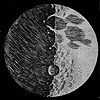|
za yanvar' 2004 goda.
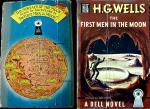 Sci-Fi Moon
Sci-Fi Moon
21.01.2004 | Lunnoe foto dnya
Many scientists and engineers who worked on the Apollo project in the 1960s reported being inspired by science fiction stories that they read as teenagers. This wonderful cover for a 1928 paperback (found...
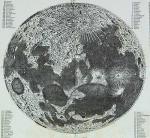 French Moon
French Moon
20.01.2004 | Lunnoe foto dnya
Classical studies of the Moon from the late 1700s and 1800s were most famously done in Germany (Schroter, Lohrmann, Beer and Madler and Schmidt (who did much work in Athens). From 1876 (Neison and then Elger and Goodacre) to 1955 (Wilkins and Moore), England was the center of lunar mapping. What about other nations?
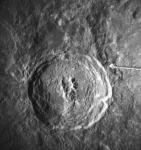 King of the Craters
King of the Craters
19.01.2004 | Lunnoe foto dnya
In the USA, January 19 is Martin Luther King Day, a time to commemorate the life of a leading civil rights leader. What better way to celebrate than to appreciate King crater on the farside of the Moon.
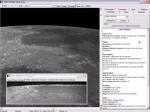 LeGrand Moon
LeGrand Moon
18.01.2004 | Lunnoe foto dnya
Recently I recommended lunar charts by Antonin Rukl as the absolute best available. They are...to post on a wall, unfold at the eyepiece, or savor as a lovely book, but I must retract...
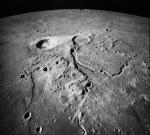 Wood's Spot
Wood's Spot
17.01.2004 | Lunnoe foto dnya
One of the brightest craters on the Moon is the 40 km wide Aristarchus in northern Oceanus Procellarum. Nearby is the largest lunar rille, Schroeter's Valley. Both of these cut into the largest and strangest, but historically often overlooked mare island, the Aristarchus Plateau.
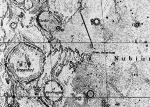 The End of Lunar Studies
The End of Lunar Studies
16.01.2004 | Lunnoe foto dnya
In 1837 a map and book appeared that were so masterful that it was widely assumed that the study of the Moon was then completed. Wilhelm Beer and Johann Heinrich Madler were the authors...
 Gassendi Compared
Gassendi Compared
15.01.2004 | Lunnoe foto dnya
The advent of webcams and image compositing and enhancing software has given amateur astronomers with modest size instruments the ability to acquire lunar images that equal or surpass the very best professional images. Now amateurs are pushing up against the resolution of space craft imaging.
 First and Last
First and Last
14.01.2004 | Lunnoe foto dnya
In 1959 the Soviet probe Luna 3 swept behind the Moon and took the first photograph (left) of the lunar farside (in fact, the first picture EVER of any extraterrestrial planetary body from space). And the most recent image of the lunar farside is this (right) mosaic of Clementine frames acquired in 1994.
 Apollo 15 Panned
Apollo 15 Panned
13.01.2004 | Lunnoe foto dnya
It was so long ago that it seems science fiction rather than fact, but humans have been to the Moon. After the grab and go, proof of concept Apollo 11 mission, astronauts progressively spent more time on the Moon with more sophisticated tools and experiments.
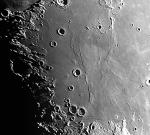 Western Tranquillitatis
Western Tranquillitatis
12.01.2004 | Lunnoe foto dnya
This magnificent photo of nearly all of the western half of Mare Tranquillitatis reveals enough fascinating landforms to fill a textbook. The left side of the mare lavas embay ridges of ejecta from the Imbrium-forming impact.
